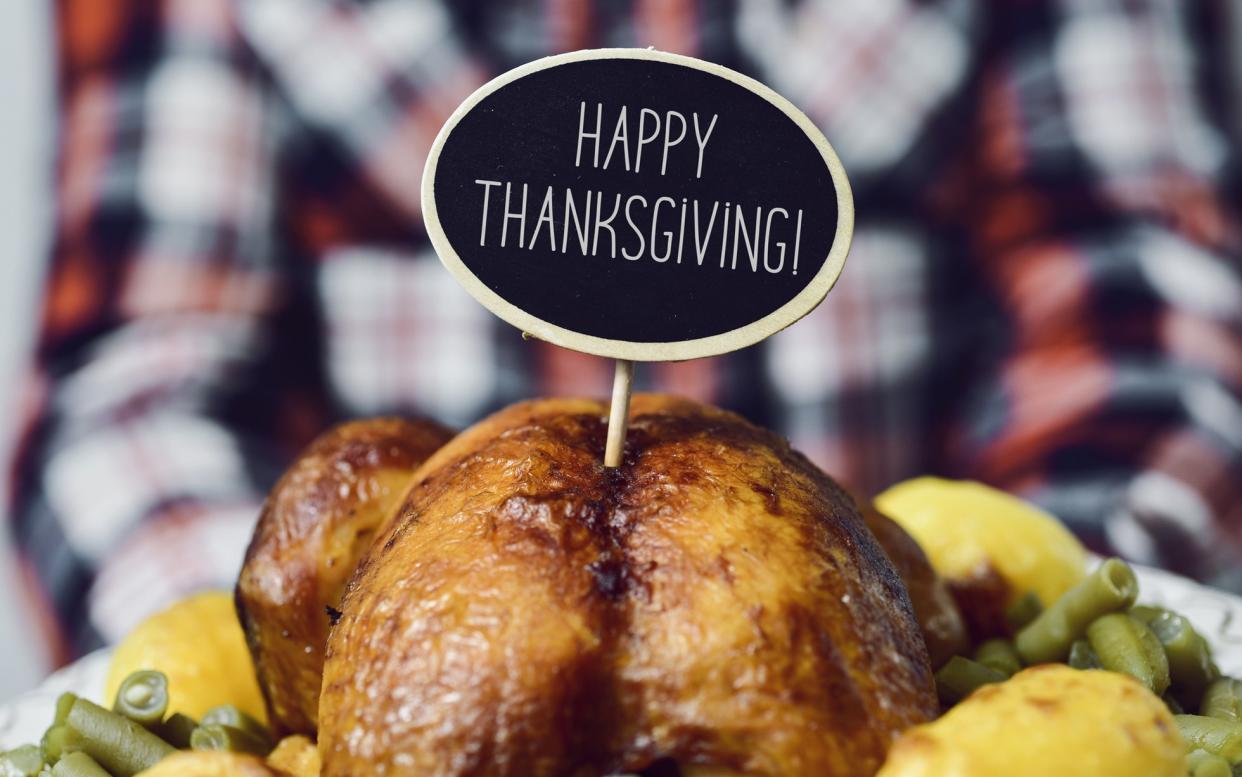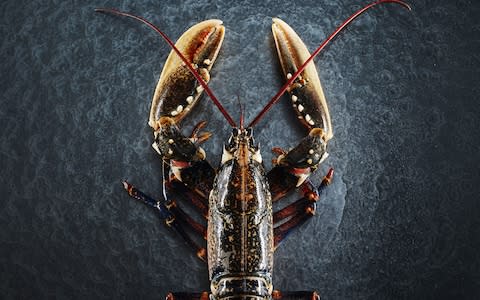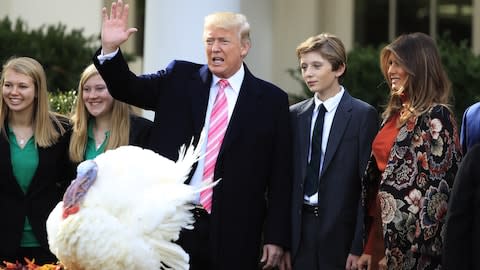What the British will never understand about Thanksgiving

This is my 14th British Thanksgiving.
I feel it is only fair - having long celebrated this most American of occasions as a New Yorker in London - to share my hard-won expertise with the Duchess of Sussex. Meghan is about to experience her first Thanksgiving in Britain, having married Prince Harry in May (last year, just a week before their engagement was announced, she decamped to LA to carve the turkey with her mother) and reports suggest she is planning to serve up a lavish all-American spread at Kensington Palace.
So it is with a degree of expertise that I warn the Duchess of Sussex that Thanksgiving in Britain is a strange beast.
As the first member of my family since the Mayflower to make the reverse migration, each year I spend the middle of November wracked with pangs of guilt. For my Puritan ancestors fled the cruel, prejudiced shores of England to set up a cruel and prejudiced little outpost of their own in a country that at least benefits from the occasional spot of sun in the winter months.
But each year as the fourth Thursday of November rolls around, I go on the offensive. For Thanksgiving is my favourite holiday and, in Britain, it is a minefield. More and more Brits celebrate it, because they think they like it – Boozefest! A chance to delineate loudly the inherent absurdity of American football! Candied yams! – but they don’t really get it.

1. Leave your cynicism at the door
Thanksgiving would never work in Britain, because it is the day that self-deprecation forgot. Is it a holiday commemorating the Anglo-Saxon invasion of a country that already belonged to someone else? Yes. And what must have been an incredibly awkward (and largely fictitious) dinner party between invader and invadee? Right again.
But, rather like the way Americans say, “Have a nice day” and mean it, Thanksgiving brings out the earnest in the most sincere of peoples. We don’t all get out our gratitude journals (give it time; soon we will), but people do sometimes soberly list what they’re grateful for. And it’s nice.
2. Thanksgiving is not “American Christmas” nor is it “bigger than Christmas”
If I had a pound for every person in my adopted country who has Briton-splained Thanksgiving to me by proclaiming it to be “The American Christmas”, I’d have already paid for this year’s Ginger Pig turkey.
Thanksgiving is the most democratic of holidays: a non-denominational, multicultural celebration of coexistence in the same country (the inclusiveness of the holiday is especially poignant following the election of a man whose main campaign policy was quite the opposite).
Pagan roots and an old guy in a red suit notwithstanding, Christmas maintains more than subtle ties to Christianity, making it distinctly exclusive. Come December, American Christians don’t abandon Christmas because they just ate turkey the month before. They devote just as much energy to Christ’s birthday as their British cousins; they just eat ham, beef or nutloaf instead.

3. Thanksgiving is not commercial
Perhaps best of all, if you ignore the Macy’s parade – which most people do – Thanksgiving is blissfully free of commercialism; it’s just a dinner party with people you like (as long as they voted the way you did).
Moreover, Thanksgiving acts as a buffer, shoehorning the hullabaloo of Christmas shopping - and decorations - to one neat month. Not so in Britain, where people eschew the happy day of food and family, but work up absurd levels of enthusiasm for a British Black Friday. Minus its role as the official opener to the Christmas shopping season, this is a catastrophic succumbing to commercialism, and an own-goal for Britain.

4. Pies are sweet
Another common misunderstanding on the part of the British, the Duchess of Sussex will find, is pies, which are happiest being sweet. Though, counter-intuitively, they may contain vegetables (my aunt is known for saying she’ll make pumpkin pie and turning up with its cousin, the sweet potato pie). Score one for nutrition (if you can locate the beta-carotene within all that sugar, pumpkin pie is good for your skin and eyesight).
And while we’re on the subject of sweet, not everyone eats sweet potatoes with marshmallows. In fact, I do not know anyone who does – because that would be disgusting. There is also no excuse for frog’s eye salad, which involves no reptiles but lots of tins, and is, allegedly, popular in the Midwest.
6. Regional charm
This brings us to my final point: America is vast. Food (and, indeed, political persuasion) is regional. My New England-based family serves “cranberry bread” – a lovely loaf with cranberries and walnuts – with the main meal. We have done so for centuries and will not stop now, even when my British husband reminds me each year that our English guests find it unsettling to be served what is essentially pound cake with turkey.
The New York Times lists sourdough stuffing with kale, dates and turkey sausage as the most typical side-dish from Meghan’s native California; her guests, it would seem, are in for more of a treat than mine.
It is impossible to agree on Thanksgiving recipes. It is equally impossible for a Briton to abandon self-deprecation in favour of a gratitude journal. Old dogs, new tricks.
But it is a fact that turkey pardoning is great fun (thank you, George H W Bush, for making this a regular entertainment).

It is also a fact that Thanksgiving, in addition to all of the warm-hearted togetherness noted above, was born as a political tool. While George Washington started it, it was largely abandoned until Abraham Lincoln revived it in 1863, during the height of the disunity of the civil war. Franklin Roosevelt cemented the importance of the holiday, nudging it slightly earlier in November in order to help boost pre-Christmas sales in the grim fallout from the Great Depression.

In fact, 2018 Britain is a land divided as it skates through a period of economic turbulence and contemplates Brexit. I’ll leave it to the Duchess of Sussex to suggest the adoption of Thanksgiving as a morale booster.

